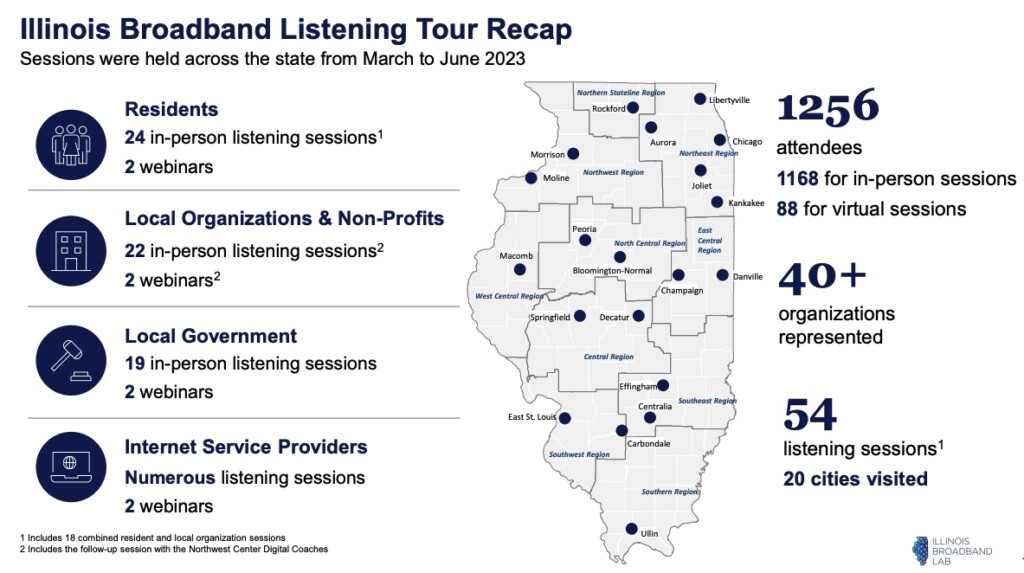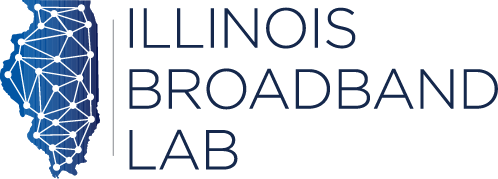The Illinois Broadband Lab collaboration between the state’s Office of Broadband and University of Illinois System wrapped up our statewide listening tour – and we’re pleased to report that 1,256 Illinoisans participated in a total of 54 in-person and virtual listening sessions that covered 20 communities and hit every region of the state.
Thank you so much for the part you played in helping us reach residents and organizations in your community!

Here are some of the key takeaways that will shape our plans for the incoming federal infrastructure and digital equity funds:
Key Take-Aways
- Affordability of both internet subscriptions and devices (e.g., computers, tablets) is a pervasive issue affecting urban and rural areas alike.
- Urban participants raised concerns about bandwidth limitations in high-density residential buildings, citing regularly interrupted connections.
- There is a need for accessible digital learning opportunities that help build knowledge on cyber security and privacy.
- There is also a need for accessible programs in multiple languages and with specific training for learners across ages.
- Suburban and rural areas indicated affordability gaps were paired with gaps in access to quality, reliable, high-speed broadband that can support more than one person online at a time.
- Many rural homes and communities have very limited options in internet providers and technologies; in some areas, the only option is fixed wireless or satellite service, which can be unreliable and expensive.
- Barriers to reliable home internet access cause real-life adverse impacts, including students struggling with remote learning and homework, remote workers facing hardship, lost income, or missed opportunity, major inconvenience and schedule disruptions for those who must rely on public Wi-Fi access points such as local libraries or fast-food restaurants for their daily internet needs.
- Many local businesses face daily challenges serving their customers and operating efficiently due to unreliable internet.
- Local regulations and municipal zoning laws can slow down the buildout of high-speed infrastructure in underserved areas, highlighting the need for further collaboration between municipalities and providers.
In November 2023, the state released the Draft State Digital Equity Plan, which incorporates findings from the listening tour above.
Newsletter
Bi-weekly updates on the outreach efforts across the state and Illinois’s BEAD and DE plan submission progress.
Additional Resources
- Draft State Digital Equity Plan
- Illinois Office of Broadband: Federal Broadband Resources Page
- Illinois Office of Broadband Programming Dashboard
- The Broadband Equity, Access and Deployment (BEAD) Program Overview
- Frequently Asked Questions – Broadband, Equity, Access, and Deployment (BEAD) Program
- Digital Equity Act (DEA) Programs Overview
- Broadband Expansion – Connect Illinois
- FCC National Broadband Map
- NTIA – Broadband 101
- National Digital Inclusion Alliance
- U.S. Department of Agriculture ReConnect Loan and Grant Program

